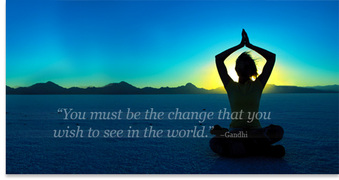|
Hi! I'm glad you're here! Actually, I'M glad to be here. This blog is one of those things that I've been putting off doing. Do you ever do that - put off something you need to do? I'm sure we all do it from time to time, or maybe more like daily!. My first attempt at a post was dated 12/12/2015. Yes, that's more than a year ago. And, if I get this attempt posted, I certainly hope that it won't be another year before posting again!
The beginning of a new year is a great time to "wipe the slate clean" and start some new habits. Posting to my blog is a habit I hope to cultivate. It keeps me accountable to my website and to you, my new readers! Usually, a habit is something we do again and again until it becomes automatic behavior or at least easier. The word "habit" has a different meaning for people living with an addiction. I have been leading a workshop recently for people in recovery from addiction. The more I learn about addiction, the more I realize that we are ALL addicted to something. It doesn't take much soul searching to figure out our own "habits", even if they aren't as harmful as a drug or alcohol addiction. How about that morning cup of coffee? Your smart phone or other device? Do you have a closet full of shoes you hardly wear? Do you binge-watch Netflix instead of working out? What about food? Do you "need a chocolate fix" every day? Did you know sugar lights up the same areas of the brain as cocaine? It's just as addictive, too! Oftentimes, we develop coping mechanisms to help us deal with our painful "stuff". Feeling inadequate or worthless, feeling unlovable or guilty, feeling angry, anxious, or depressed - our feelings can be uncomfortable and we want to get away from them or blunt them in some way. Drugs, alcohol, shopping, TV, internet, gambling, exercise, sex/porn, food - all can become ways to escape our feelings. We forget our problems, at least temporarily. We feel good, maybe even "normal" for the time being. But when the good feeling of the drug starts to wear off, those feelings come back and we still haven't dealt with them. Now, when we are "using" our brain knows something is up and wants the body to return back to a place of ease called homeostasis. The brain adapts to the drug so we won't feel as much of the effects. This means that, over time, we need more and more of our drug to get the same effects. This is true for behavioral addictions, like gambling and shopping, as well as chemical addictions. How can we effectively break this cycle? If you are active in a chemical addiction, I urge you to seek medical help to aid you in coming off a drug or alcohol addiction safely. Additionally, find a 12-Step support group. There are groups that meet everywhere, everyday. You can even attend an online meeting, but most people need the support of an in-person meeting. The 12-Step program can help you start to deal with those thoughts and feelings that started you on the path to addiction. Learning how to take good care of yourself is so important in recovery. Proper nutrition, exercise and sleep habits will help your physical body feel better so that you can address the underlying issues, learning how to reconnect to yourself, restoring wholeness. Cultivating a yoga practice is a great complementary tool for recovery from addiction. Yoga helps the physical body feel better, aids in restful sleep, and helps reduce stress that can lead to relapse. As we explore addiction and yoga in my workshop, we are using the Yamas and Niyamas as the guidelines. These are personal and social observances for action. The Yamas guide us in action and relationship with the world. The Niyamas guide us in action and relationship with ourselves. Each week we explore a different guideline. The guideline upon which all others are based is called Ahimsa, which means "do no harm". If we used this as a litmus test for all decisions we make, we would lead simpler, more peaceful lives. "Is this helpful, or harmful"? When we apply this to our "habits" we can easily see the impact. Take, for example, the decision to impulsively purchase a new pair of shoes or a purse when your budget doesn't allow for it and your credit card bills are already too high. You have to hide the purchase from your husband. What about checking Facebook or other social media when at work and an hour later you're still involved with it, your work piling up? Things didn't go as you planned today so "to help yourself feel better" you skip out meeting your friend at the gym, grab a pizza and ice cream and hibernate on the sofa all evening. You promised yourself you would cut back on the wine, but after a stressful day you "deserve" a glass or three. You're too "tired" to read your kids a bedtime story. You can see the impact of each decision on others as well as on you, which is why the tenet of non-harming is considered a social tenet. We can use the "do no harm" litmus test in all of these situations. Imagine how you will feel when you choose to NOT make the purchase, binge on Facebook, skip the gym, eat the food, drink the wine? Not only do you benefit yourself, you benefit your relationships as well! Non-harming is the first step. See if you can cultivate a new habit by using the litmus test in your decision-making and notice if it makes a difference. Until next time. Light and love, Kim |
AuthorKim Gray, lover of yoga, cooking & food, cats, dogs & kids ArchivesCategories |

 RSS Feed
RSS Feed
